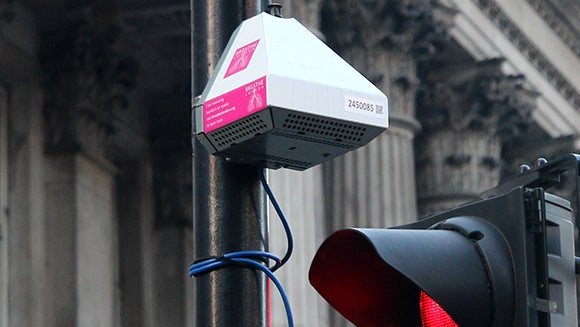“The benefits of hyperlocal air quality data are already being realised in London and we hope that this can be recreated all over the world. The measurement of air pollution at an unprecedented scale and scope helps to identify pollution hotspots and informs the design and assessment of mitigation measures. It also provides local information that helps citizens take their own pollution reduction initiatives and make informed decisions such as where to walk, cycle, play and live.”
“London’s pollution problem is a health crisis, and we are proud to be part of this ambitious project shining a light on air quality,” said Elizabeth Fonseca, senior air quality manager at Environmental Defense Fund Europe, one of the project’s leading partners. “Lessons learned from Breathe London can help other cities trying to gain a better understanding of their pollution and protect public health.”
Monitoring data from the AQ Mesh pods is compared against data from London’s existing regulatory grade monitoring network. Both open-source and available for download, the stationary and mobile data are presented on an innovative platform to improve the public’s understanding of the varying presence of pollution across both time and space. See www.breathelondon.org.
By assessing and documenting the benefits of policy interventions, such as London’s Ultra Low Emission Zone, Breathe London is lowering the barriers for other cities to undertake sophisticated monitoring and modelling, and informing smarter, targeted policy.
A representative from Environmental Defense Fund Europe will be presented with the Breathe London award at the 2020 Smart 50 Awards Gala, which takes place during April in Denver, Colorado.


